Humans have f*cked up the world, and in the RPG Werewolf: The Apocalypse, the werewolves are taking it back
Werewolves are finally getting their own RPG, set in a reality where evil corporations are trying to destroy humanity
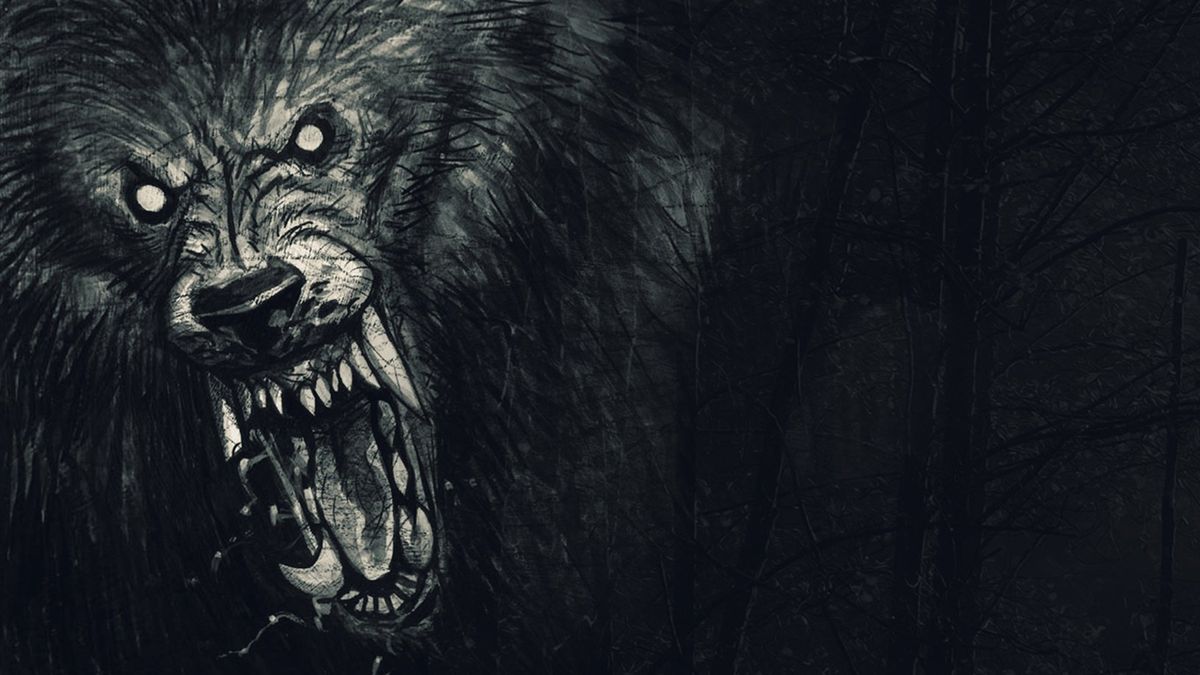
Vampires are about as common in video games as zombies. It’s about time that their supernatural cousins, werewolves, finally made a comeback in their very own action RPG. And sure enough, White Wolf’s upcoming game Werewolf: The Apocalypse is a breath of fresh air (with just a hint of the smell of wet dog). Heavily based on fluid combat, exploration, and the ability to complete quests however you like, the story is focused on getting revenge on the corporation that’s corrupting the environment. I spoke to Game Director Julien Desourteaux and Project Manager Guillaume Blanchard about Werewolf: The Apocalypse, keeping a lid on your temper, and just how humanity kind of brought all this devastation upon themselves.
Dog-eat-dog world
This action RPG has you step into the shoes - or paws - of a member of the Fianna tribe, an Irish group of werewolves who prize family over everything. Yet you’re an outcast, a veteran of battle that has turned into a lone wolf (literally). After spending some time alone in the wild, you’ll be called back to help your ex-pack out of a spot of bother, as something’s happened to your son, which probably doesn’t bode well. At its heart Werewolf: The Apocalypse is a story of the bond between a father and son, but you’d be forgiven for forgetting about your son thanks to all the general devastation in the world around you.
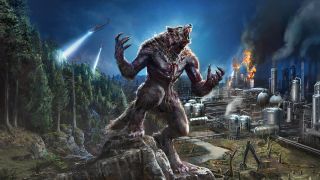

10 best open-world games of all time
In the words of Desourteaux, “take our world, paint it darker, and you have our game”. Set in the modern day, the world of Werewolf is ruled by three entities: Gaia, the Weaver, and the Wyrm. Gaia is a chaotic creative force, bringing beings into life and governing nature. It’s not left entirely to chance, though, as hovering around Gaia organising the planet is the Weaver, which Desourteaux calls a “representation of human expansion - it’s like a big net that’s trying to fix everything; imagine a network that’s growing and that became totally crazy”. Trying to cope with everything that us humans are doing - polluting, animal testing, corporate greed - is far too much for the Weaver to cope with, and has driven it haywire. Then underneath it all you have the Wyrm. Originally existing “to be the balance between the fixing entity and the creating entity”, says Desourteaux, it’s all gone a bit wrong. “Because the Weaver is too big, he says that the Wyrm “became crazy, so now it’s like a black hole trying to destroy everything”. As the main force of evil in the game, the Wyrm feeds off anger, fear, and sorrow, and can corrupt humans distressingly easily.
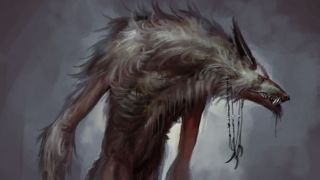
With Gaia fading fast, you’re its last hope. It’s up to you how you fight to keep Gaia alive, as there’s three forms to choose from when it comes to taking down enemies. Lupus is a traditional four-legged wolf, perfect for tracking, stealth, and exploring. Sneak through a wild, open area and observe your enemies in this form before deciding whether to confront them as a Crynod - a fancy word for a human - or a Crinos, your traditional werewolf: big, angry, and very bloodthirsty. As a human you can chat to fellow humans to get valuable intel, but an even better feature of this form is its opposable thumbs. Those nifty joints let you hack into security devices, use your hand-crafted crossbow, and do silent takedowns. But if you really want to do damage, unleash your fury as a Crinos. Ripping people apart is no problem with their massive claws and endless fury, so they’re the best option for when you’re facing a room full of the Wyrm’s forces. But be careful, because if you let your temper get the better of you your allies won’t be too happy… because they’ll be dead. By your hand.
Throw your friends to the wolves
See, the whole game is built around managing your rage meter. As an emissary of Gaia, you have a special affinity to the natural world and you know that us humans have been royally screwing up. The more you find out about what we’ve been up to - pollution, drilling in natural areas, submitting to greed - the more your rage meter will increase. Sometimes it can be as simple as finding a document mentioning oil spills when you’re exploring as a Lupus, other times you’ll be talking to an NPC and they’ll mention some environmental hazard going down nearby.
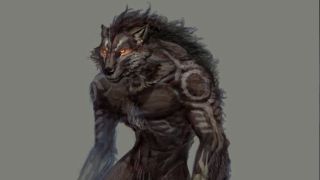
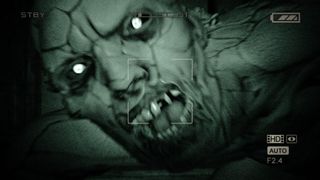
The 20 best horror games of all time
As Desourteaux puts it, “the question we want to ask the character is ‘when will you rage’?”. When your rage meter fills up, you can unleash it in a devastating range of powerful attacks as the Krynos, with each finishing move slightly lowering your rage. If you’d rather stealth than start ripping apart everything in sight, there are apparently ways to manage your anger and make sure it doesn’t get too high. Because what Desourteaux wants most is for the “player to change forms and analyse situations”, turning into a Krynos when it best suits them rather than feeling like they have to give in to their rage in the quests being thrown their way.
Tearing apart your enemies looks deliciously fun. Be careful, though. Indulge too much in that ferocious behaviour and you’ll go into Frenzy mode, where your attacks become especially devastating. If you stay in Frenzy mode too long, you run the risk of being ‘touched by the Wyrm’, which is an immediate game over as its corrupting influence, well, corrupts you. To end Frenzy mode and ensure this doesn’t happen, you need to kill everyone around you, according to Desourteaux. Even your friends. “You have to kill your allies as well,” he says, “because you see them as a threat. When you go into Frenzy, you’re not able to recognise everybody - everyone looks like a threat”. Like an awkward family reunion, the game will remember that you massacred your friends. Your brutality will affect future quests, the ways NPCs behave towards you, and even what kind of enemies you face.
Sign up to the GamesRadar+ Newsletter
Weekly digests, tales from the communities you love, and more
Professional discourtesy
Ah yes, the enemies. All our conspiracy theories about mega-corporations being the bane of all evil are true in Werewolf: The Apocalypse. Controlling all these evil corporations is the Pantex organisation. Drilling for oil, destroying the environment for monetary gain, and generally being an ominous group who have quite a lot in common with the Illuminati, they’re bad news. “Pantex have taken all the blood from Gaia and now they’re taking the last breath”, as Desourteaux puts it. All thanks to their devotion to the Wyrm. “All the mega corporations do the bidding of the Wyrm because of their greed,” says Blanchard, “but Pantex goes one bit further because they know about the Wyrm”. They're deliberately tapping into the Wyrm’s power. Which perhaps isn’t that surprising considering that Pantex is run by vampires. And we all know how well vampires and werewolves get along...
Werewolf: The Apocalypse is “a fiction at the edge of reality”, says Desourteaux. It’s taken everything that’s wrong with our world and twisted it ever so slightly into something secretive and malevolent. It might appear like destroying the planet with environmental callousness is the central aim of Pantex’s companies, but Desourteaux tells me that as “you go deeper and deeper, things gets darker and darker”. Currently there’s no confirmed release date although it will be out on consoles and PC, so we’ll be eagerly keeping an eye out for any news as it comes our way.
Looking for something supernatural to sink your teeth into? Try our best zombie games you can play right now
While here at GamesRadar, Zoe was a features writer and video presenter for us. She's since flown the coop and gone on to work at Eurogamer where she's a video producer, and also runs her own Twitch and YouTube channels. She specialises in huge open-world games, true crime, and lore deep-dives.
Most Popular
